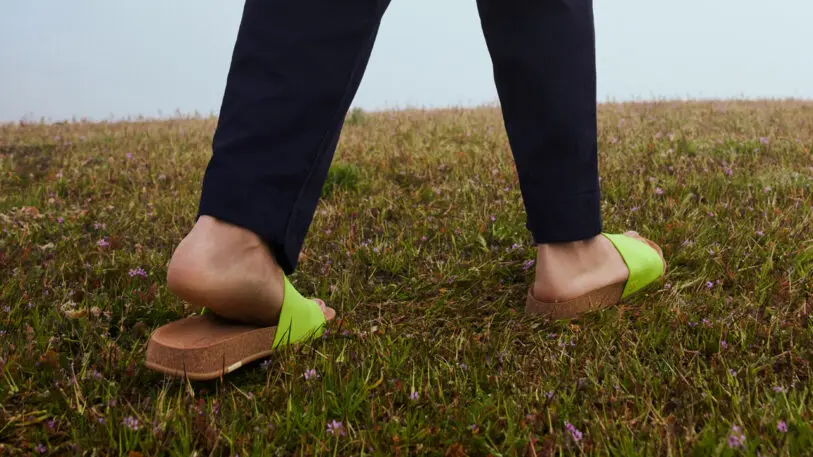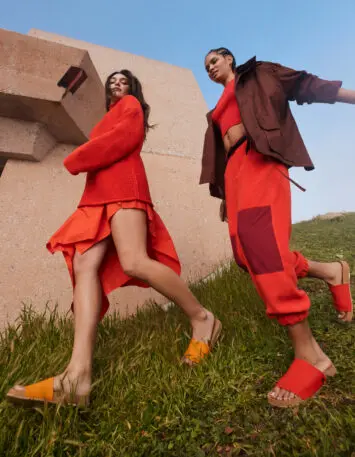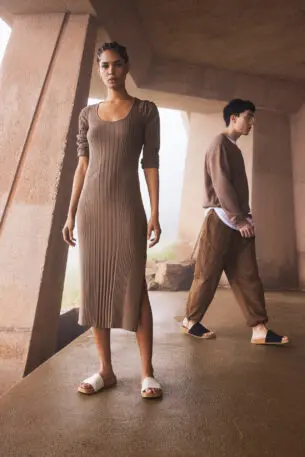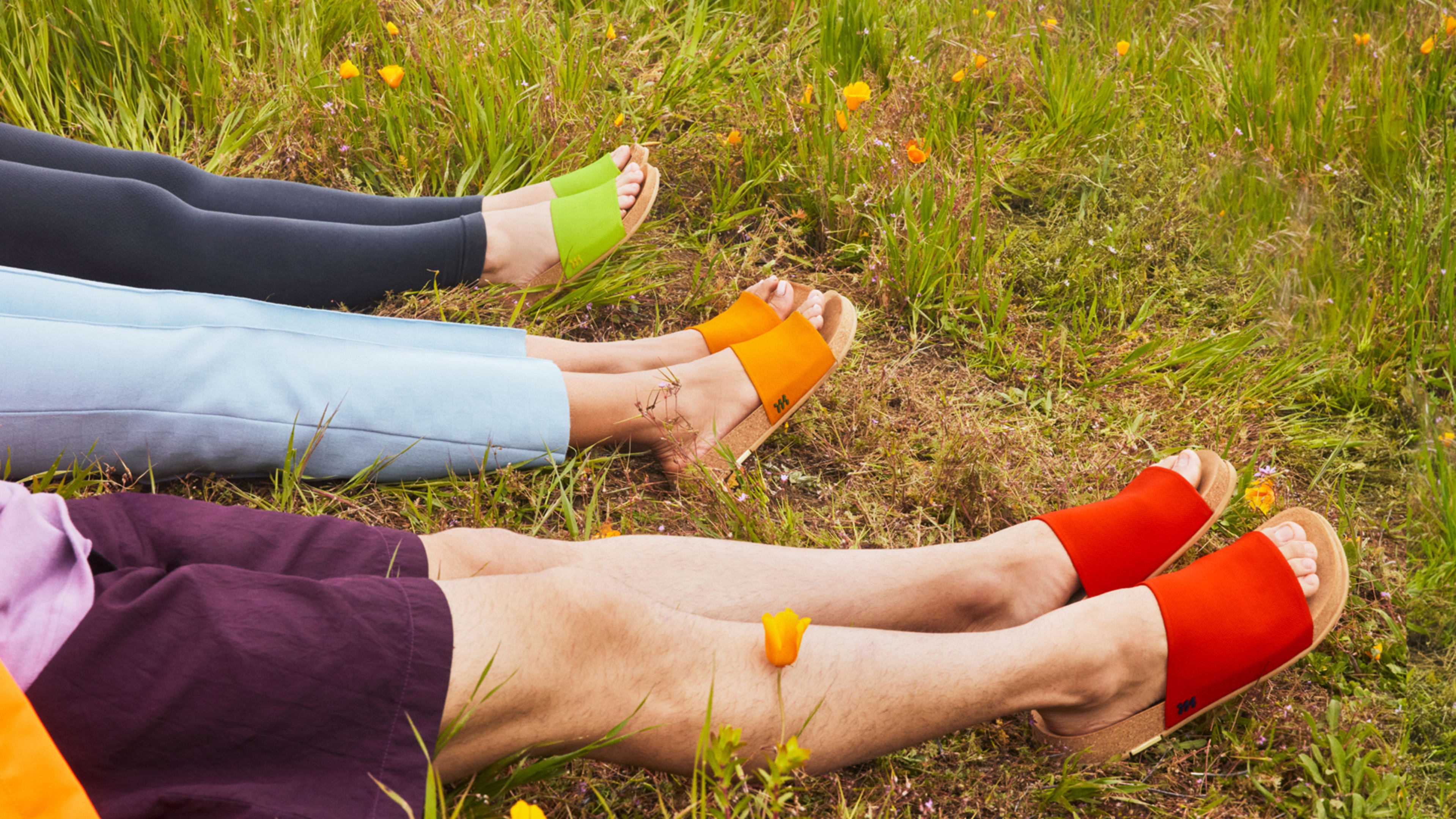We’re in a golden age of eco-friendly shoes. Over the past decade, we’ve seen brands like Allbirds, Rothy’s and Cariuma pop up, each with their own spin on sustainable material innovation–from regeneratively grown wool to fibers made from old water bottles.
Today, a new brand joins the mix. It’s called Message and it debuts with a $160 slide sandal with a patent-pending footbed made of recycled wine corks. Like many of its counterparts, Message has created a gender neutral aesthetic and is focused on comfort, promising an insole that molds to the shape of your foot. But launching a shoe brand that is able to compete with bigger players on the market is no easy task, so Message has its work cut out for it.

If the notion of a cork-based shoe sounds familiar, that’s because it’s the material found in Birkenstock’s footbed. The 250-year-old German company has been growing in popularity for years–and sales spiked further during the pandemic, when people were dressing for comfort. Birkenstock now sells upwards of 20 million pairs of shoes annually, generating more than $1 billion sales.

Message’s founder, Meghan Whitney Higney, says her goal was to create a cork-based sandal designed to fit into the comfort-driven athleisure aesthetic that now dominates our wardrobes. “Candidly, I simply could not buy another pair of Birkenstocks,” she says. “What they’ve done is amazing. But why don’t we have a modern day alternative?”
A year ago, Higney, previously COO of skincare brand True Botanicals, began sketching an alternative to cork sandal that featured a slide silhouette, rather than the leather straps of a Birkenstock sandal. She says this is a look that can be dressed up or down, making it more versatile than the rather more casual Birkenstock. “I wanted to create a breezy, effortless look and feel,” she says. “Something you could style with a dress, or with leggings.”

As she began to prototype the shoe, she settled on a strap that is made from a plastic-based stretchy material called polyamide that keep the foot snugly in place. She came up with two styles that look very similar, one with a longer strap that covers more of the foot, and the other with a shorter strap. The longer strap version provides more stability and support, while the shorter strap version allows the foot to move more freely. Higney says that consumers have different preferences when it comes to support and the styles are designed to adapt to this. “On the surface its a very subtle difference, but when you put it on, you feel the contrast immediately,” she says.
When it came to materials, Higney was inspired by the sustainability of cork. Cork is harvested from the bark of oak trees every nine years in a process that doesn’t harm the trees themselves, since it naturally regenerates. Message uses material sourced Portugal’s wine bottle industry, recycling unused discarded wine corks. (Birkenstock also uses a similar supply chain, using cork that is a by-product of Portugal’s wine cork industry.)
Getting a shoe business off the ground is hard work, given how crowded the market is. It can be expensive to acquire new customers and gain market share. Allbirds, for instance, raised more than $200 million, which allowed it to expand rapidly. But it has struggled to become profitable; its stock price has tumbled by 96% since its IPO in late 2021.

Higney says she’s following a different playbook from the direct to consumer brands of the past. For now, the slide is only available on Message’s website, but Higney is planning to partner with department stores and boutiques to tap into their consumer base, rather than relying entirely on her own marketing. And she’s hoping to be conservative with funding. So far, she’s raised $1 million in capital from friend and family, along with an angel investor. “There’s an initial hump for a consumer brand to get over when launching,” she says. “I’m hoping to quickly hit an inflection point where we can grow without raising more money.”
Recognize your brand’s excellence by applying to this year’s Brands That Matter Awards before the early-rate deadline, May 3.
